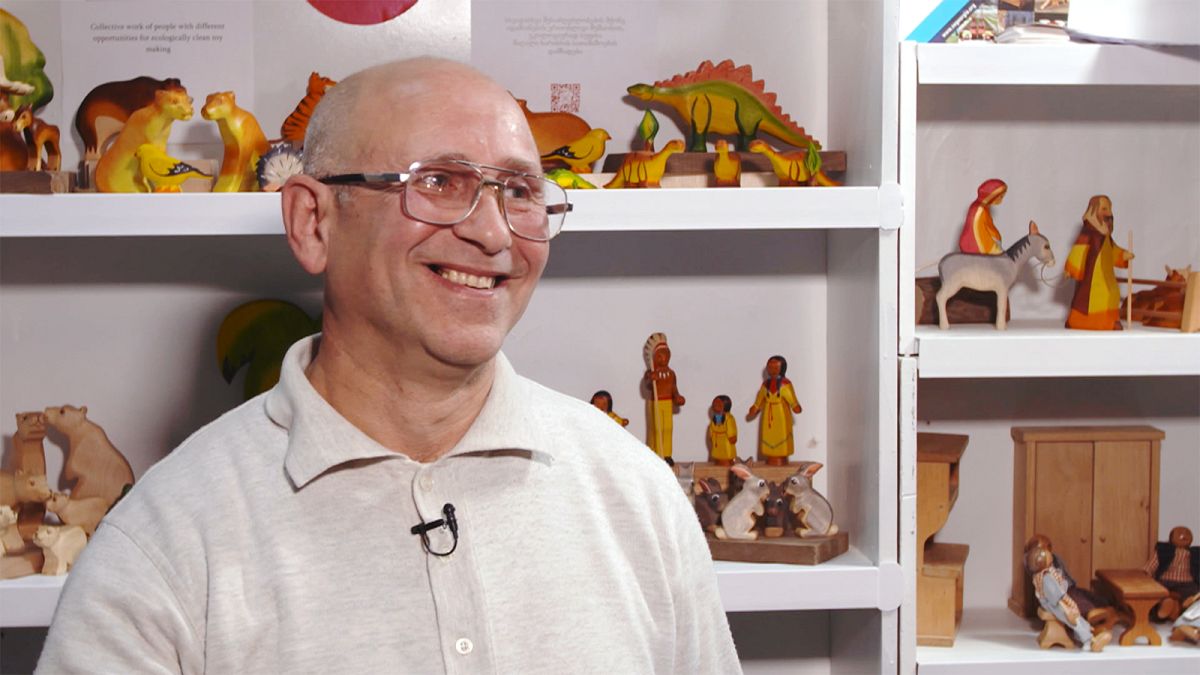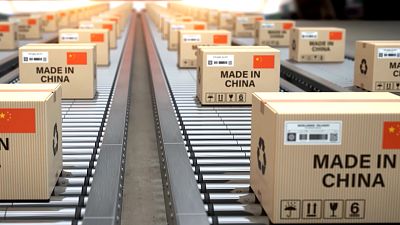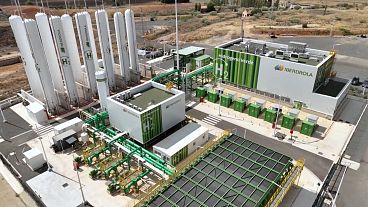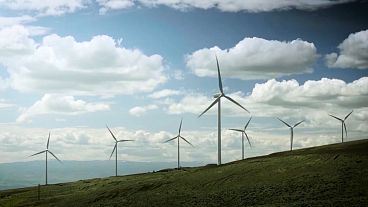Georgian toy company Dadari doesn't just make wooden toys it also makes a point of employing people with disabilities. Three of the firm's seven employees have special learning needs. Business Planet spoke to the firm's founder Merab Kuchukhidze to find out more about the company.
Georgian toy company Dadari doesn't just make wooden toys it also makes a point of employing people with disabilities. Three of the firm's seven employees have special learning needs. Established in the 1990s, Dadari sells its hand carved wooden toys online in Germany via the website etsy. Business Planet spoke to the firm's founder Merab Kuchukhidze to discover more about the business, its model and its plans for the future.
Paul Hackett, Euronews: "When you started this company, why toys and why not something else?"
Merab Kuchukhidze: "I loved making toys when I was a child and I decided to dedicate my life to them. It’s been 40 years up so far that I've done it. Why toys – because the toy is the best way to raise a child. After, it's the book. But when a child is very young they develop and educate themselves with a toy.
"This is very important. And I knew that, I knew that from childhood. And then when I saw the interest in this– in Georgia first of all – I realised I had to do it – to start a toy business, and I think I've managed it, together with my friends."
Paul Hackett, Euronews: "Was the social element always there, or did it come later?
Merab Kuchukhidze: "The social element came later, since at the start I was doing all this by myself with my family. I had my friends involved too and they became quite professional. They and me got to a high level in making toys. But I felt that I was forgetting something very important. I'd always wanted to create an organisation which involved people with disabilities – those people with special abilities and special skills. It was very important for me personally but also for the toys. It is very important for a handmade toy that it absorbs positive energy. So every person making hand-made toys has to have this [positive] energy. And these people [people with special abilities] have got this positive energy, this love, these invisible threads… and they pass it on, they share it. That’s why I decided to turn the family business into a social enterprise, together with this team.
Paul Hackett, Euronews: Some people might think employing people with disabilities might compromise the business. How would you respond?
Merab Kuchukhidze: "I don’t think so. In no circumstance should one think so. These people are extremely motivated. They have extremely high working skills. It’s just they [these skills] are ‘sleeping’ and in this type of enterprise, - where we work them – these skills are awakened and developed. As a result they become very specialist. Akaki was saying just now “I did it”, “I will strengthen the company” – this is true. They make the company stronger, they make us stronger - the whole team of people doing this job, Akaki gets stronger, Qristi, myself, Archil – everyone involved in this work, where such a beautiful and charming toys are made."
Paul Hackett, Euronews: The company is established. You selling toys in Europe. In Germany specifically. You've expanded, but what are your hopes for the future?
Merab Kuchukhidze: "We must develop. We want progress. And the progress will happen through hiring more people with disabilities. Because the society is awaiting for our products, the whole world is awaiting."
Paul Hackett, Euronews: "You got microfinance from a bank that is being supported by Europe, the European Investment Bank. How important is it that Europe is helping companies like yours, but more widely, companies in Georgia?"
Merab Kuchukhidze: "It is very important for us, We purchased machines and raw materials with this money. We moved to this premises and with this aid - despite the fact that we have own sales - we continue developing, quite serious development. So it is very important for us and for Georgia. A day will come when we will not need such aid, and then we will help Europe back."




